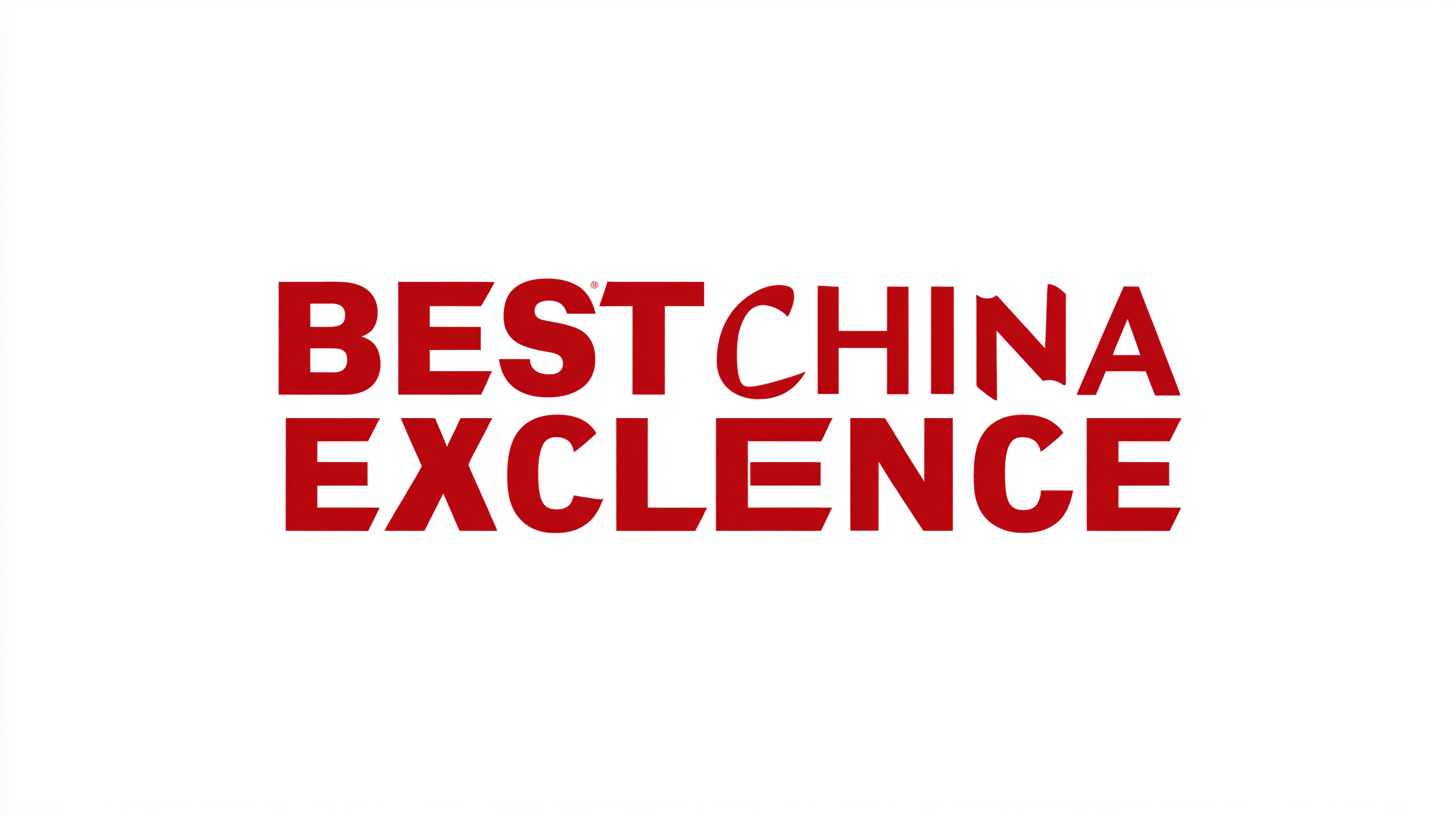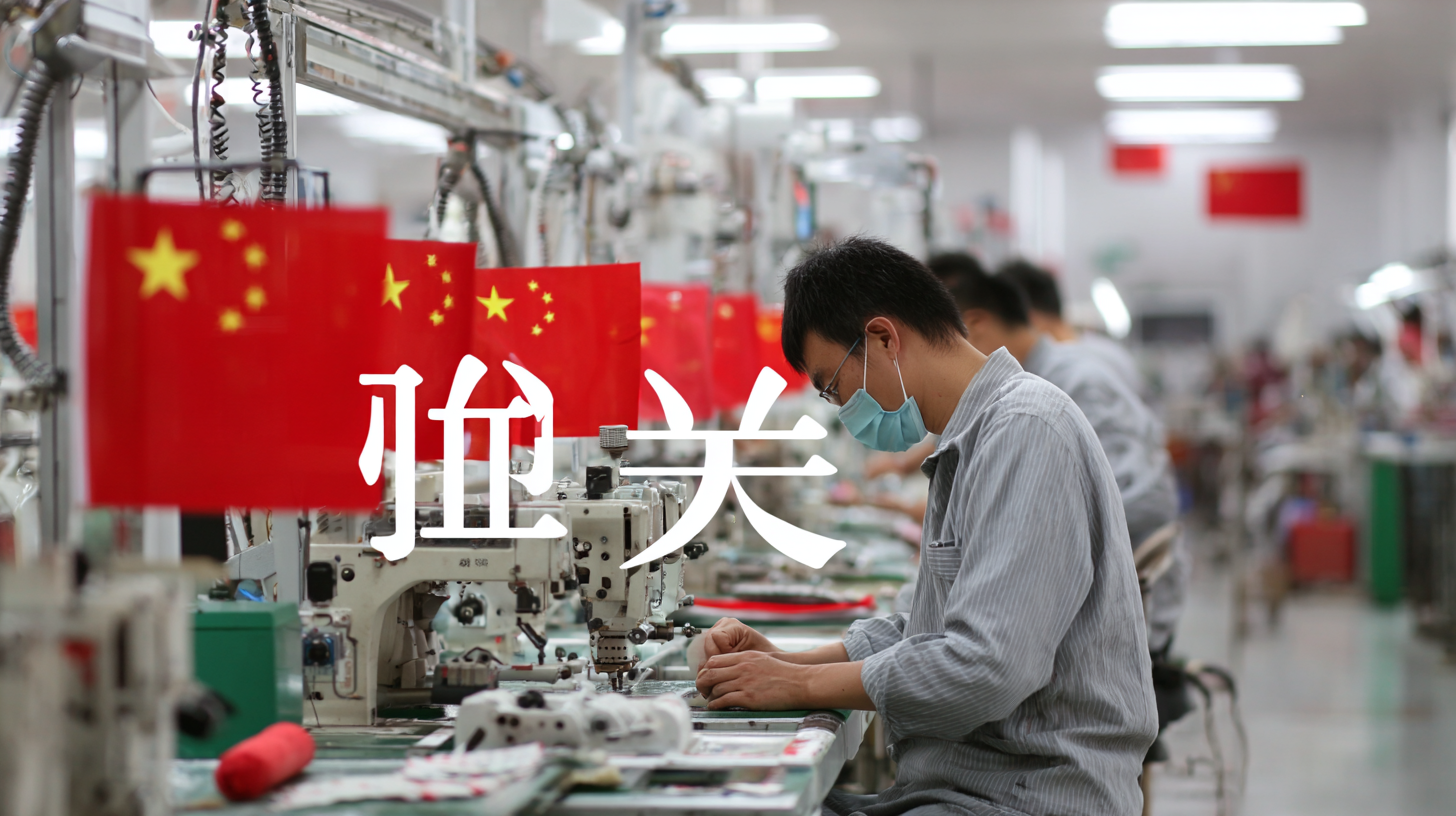
Unwavering Excellence: Why Global Buyers Trust 'Best China' for Quality Manufacturing
In the realm of global manufacturing, China has established itself as a beacon of reliability and excellence, catering to a diverse array of product types and industries. According to a report by McKinsey, China's manufacturing sector accounted for nearly 29% of the global manufacturing output in 2021, underscoring its dominance in producing high-quality goods. From electronics and textiles to machinery and consumer products, each category exhibits unique characteristics and applications that make them well-suited for various markets.

As global buyers increasingly prioritize quality and efficiency, "Best China" emerges as the go-to source, combining advanced technology with skilled labor to meet the rigorous demands of international standards. This unwavering commitment to quality not only reinforces China's reputation but also encourages businesses worldwide to trust in its manufacturing capabilities.
Understanding the Unique Selling Propositions of 'Best China' in Manufacturing Quality
In today’s competitive landscape, global buyers are increasingly seeking quality manufacturing partners they can trust. The unique selling propositions of "Best China" lie in its unwavering commitment to excellence and innovation. According to the recent Hurun Consumer Survey, the demand for high-quality products among affluent consumers is on the rise, emphasizing the importance of trust in brand sourcing. As companies like Hermes and BMW innovate their manufacturing processes, leveraging advanced technologies such as AI for intelligent manufacturing, the benchmark for quality is continuously elevated.
In contrast, incidents involving declining quality standards from certain brands have sparked discussions across social media platforms. Reports of garment defects and inconsistent quality from recently popular choices highlight the critical role of maintaining stringent quality controls within the manufacturing process. This is where "Best China" stands out, embracing a rigorous approach to quality assurance that reassures global buyers.
The shift in consumer sentiment underscores the necessity for manufacturers to prioritize both craftsmanship and reliability, as highlighted in the McKinsey Greater China report on productivity enhancing measures. With a focus on high-quality production and sustainable practices, "Best China" establishes itself as a beacon of trust in the global manufacturing arena.
Key Factors Behind Global Buyers' Trust in Chinese Manufacturing
Global buyers consistently turn to 'Best China' for their manufacturing needs, driven by several key factors that underscore their trust in Chinese manufacturing. First and foremost, the commitment to quality has become a hallmark of Chinese manufacturers. Over the years, many companies have implemented rigorous quality control processes and adopted international standards, resulting in products that not only meet but often exceed expectations. This dedication to excellence fosters a reliable relationship between suppliers and buyers, ensuring that expectations are consistently met.
Another crucial factor is the competitive pricing that Chinese manufacturers offer. Despite rising labor costs, China's manufacturing ecosystem benefits from economies of scale and a well-established supply chain, which allow for cost-effective production. This affordability does not come at the expense of quality; rather, it serves as an attractive option for global buyers looking to optimize their budgets while still receiving superior products. Furthermore, the innovation and technological advancements seen in Chinese factories position them as leaders in various sectors, reinforcing buyer confidence and satisfaction in choosing 'Best China' for their manufacturing needs.
Navigating the Landscape: How to Choose Reliable Chinese Suppliers
When navigating the complex landscape of Chinese suppliers, it's crucial to adopt a strategic approach to ensure reliability and quality. The first step is thorough research. Utilize online platforms, industry forums, and trade shows to gather information about potential suppliers. Look for manufacturers with a strong track record and positive reviews from other buyers. An important tip is to ask for references and testimonials to assess their credibility.
Another essential factor is establishing clear communication. Engage with suppliers early on to understand their processes, capabilities, and compliance with international standards. Be explicit about your quality requirements and production timelines. This helps to set expectations and allows you to gauge their responsiveness and willingness to meet your needs. A valuable tip is to initiate small orders or prototypes before committing to larger volumes, which can help mitigate risks and establish a working relationship.
Lastly, conducting regular quality checks is vital. Once you have identified reliable suppliers, ensure they adhere to agreed-upon quality standards throughout the manufacturing process. Implement periodic audits and inspections to verify compliance and identify any potential issues early on. This proactive approach not only safeguards product quality but also fosters a long-term partnership built on trust and mutual respect.

Best Practices for Ensuring Quality Control in Chinese Manufacturing
When it comes to manufacturing, maintaining
quality control is paramount, especially in a global landscape where buyers place immense trust in suppliers. For manufacturers in China seeking to stand out, implementing best practices can significantly enhance product reliability and customer satisfaction.
One effective strategy is to establish
rigorous quality management systems (QMS). A well-structured QMS not only sets clear standards but also ensures
continuous monitoring and improvement throughout the production process. Regular audits and employee training can further reinforce commitment to quality, aligning team efforts with the company’s standards.
Additionally, fostering open communication between buyers and manufacturers is crucial for transparency. Clear specifications and expectations minimize misunderstandings, enabling manufacturers to produce goods that meet or exceed buyer requirements. Addressing potential quality issues proactively, such as through joint reviews and feedback loops, can lead to more efficient problem-solving and improved end products. By focusing on these vital practices, Chinese manufacturers can build lasting partnerships with global buyers built on
trust and excellence.

The Role of Innovation and Technology in Elevating China's Manufacturing Standards
In the rapidly evolving landscape of global manufacturing, innovation and technology have become pivotal in elevating China's production standards. As the world looks to China for high-quality manufacturing, the integration of cutting-edge technologies has allowed manufacturers to streamline processes, enhance precision, and reduce waste. Companies that embrace automation, artificial intelligence, and advanced robotics find themselves ahead of the curve, delivering not only superior products but also greater efficiency, which is crucial in meeting the demands of discerning global buyers.
Moreover, China's commitment to innovation is evident in its robust investment in research and development. Manufacturers that leverage these advancements are able to adapt quickly to market trends and consumer needs, creating products that exceed expectations in quality and durability. This dynamic approach not only builds trust among international buyers but also positions China as a leader in manufacturing excellence. By fostering a culture of continuous improvement and technological prowess, China's manufacturing sector ensures that it remains a reliable partner for businesses around the globe, reinforcing the reputation of 'Best China' as the go-to source for quality.
Unwavering Excellence: Why Global Buyers Trust 'Best China' for Quality Manufacturing
| Dimension | Current Status | Future Trends |
|---|---|---|
| Production Efficiency | 85% operational efficiency in major sectors | Expected increase to 90% by 2025 through automation |
| Quality Control | ISO 9001 certified in 70% of factories | Targeting 90% certification by 2024 |
| Innovation Investment | 5% of revenue invested in R&D | Projected increase to 7% by 2026 |
| Sustainability Practices | 60% of factories implement recycling programs | Aim for 80% implementation by 2025 |
| Employee Training | 70% of workforce receives annual training | Targeting 90% participation by 2023 |
